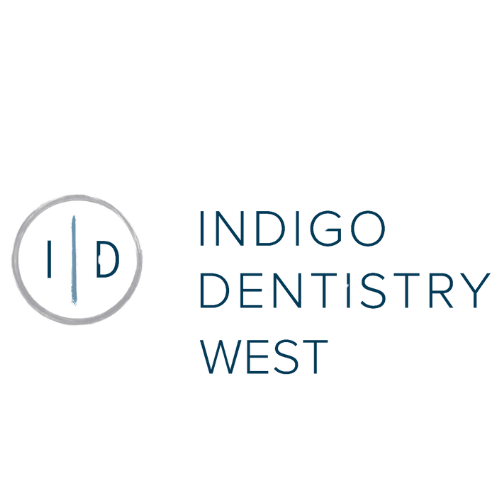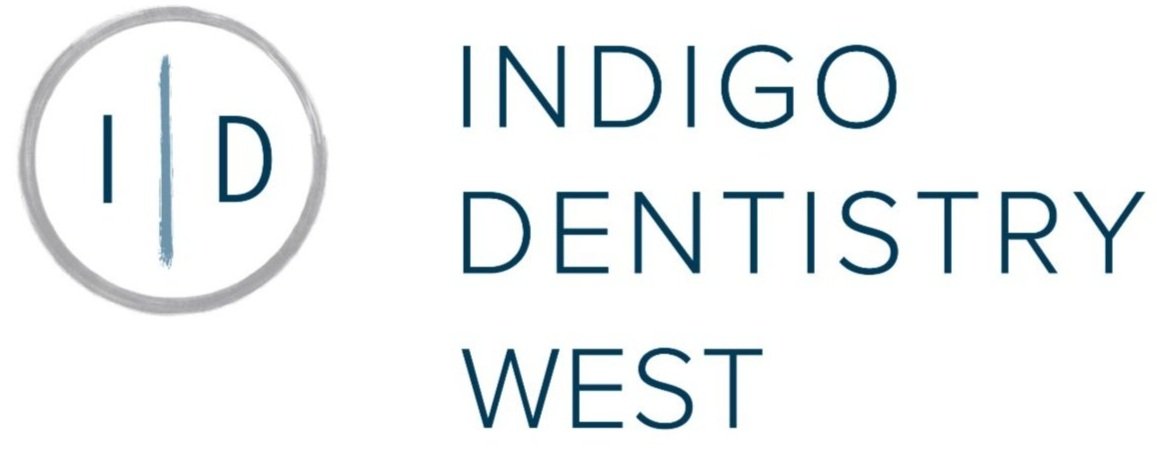The Ultimate Guide to Preventing Gum Disease
Gum disease is a common oral health issue that affects millions of people worldwide. It can lead to gum inflammation, tooth loss, and even systemic health problems if left untreated. Preventing gum disease is crucial for maintaining optimal oral health.
In this comprehensive guide, we have enlisted the expertise of Dr. Hair, a renowned dentist at Indigo Dentistry West, to provide you with expert tips and tricks on how to prevent gum disease. Whether you're looking to improve your oral hygiene routine or seeking professional advice, this guide has got you covered. So, let's dive in and take control of your gum health!
Before we delve into the preventative measures, it's essential to understand the basics of gum disease. Also known as periodontal disease, it is caused by the buildup of plaque on your teeth and gums. Plaque is a sticky film that forms when bacteria combines with saliva and food particles. Over time, if not removed, plaque hardens and turns into tartar, which irritates the gums and leads to inflammation.
There are two types of gum disease: gingivitis and periodontitis. Gingivitis is the early stage of gum disease, characterized by red and swollen gums that may bleed during brushing or flossing. If left untreated, it can progress into periodontitis, where the infection spreads to the supporting structures of the teeth, leading to tooth loss. By gaining a better understanding of gum disease, you can take proactive steps to prevent its onset and progression. So, let's explore the expert tips and tricks recommended by Dr. Hair to keep gum disease at bay.
Prevention is key when it comes to gum disease. By taking the necessary steps to prevent its onset, you can save yourself from the pain, discomfort, and potential tooth loss associated with this condition. But why is prevention so important? Firstly, preventing gum disease is much easier and less costly than treating it. Regular dental visits for cleanings and check-ups, along with proper oral hygiene practices at home, can significantly reduce your risk of developing gum disease. Secondly, gum disease has been linked to various systemic health conditions, such as diabetes, heart disease, and even certain types of cancer. By preventing gum disease, you are not only protecting your oral health but also your overall well-being. Lastly, maintaining healthy gums and a beautiful smile can boost your confidence and self-esteem. With proper prevention methods in place, you can enjoy a lifetime of optimal oral health and a smile that you can be proud of.
Proper oral hygiene plays a crucial role in preventing gum disease. Regular brushing and flossing are essential to remove plaque, which is a sticky film of bacteria that forms on teeth and gums. Dr. Hair recommends using a soft-bristled toothbrush and a fluoride toothpaste to gently clean your teeth twice a day. Be sure to brush along the gumline and reach the back of your mouth. In addition to brushing, flossing is vital for removing plaque and food particles from between your teeth and along the gumline. Dr. Hair suggests using a gentle and thorough technique, gently sliding the floss between your teeth and into a C shape around each tooth. To enhance your oral hygiene routine, incorporating an antimicrobial mouthwash can help reduce plaque and bacteria in hard-to-reach areas. It's important to choose a mouthwash that is alcohol-free to avoid drying out your mouth. By maintaining proper oral hygiene habits, you can significantly reduce your risk of developing gum disease and enjoy a healthy, beautiful smile.
Regular dental check-ups are a crucial aspect of preventing gum disease. Even if you maintain excellent oral hygiene, there may still be areas that are difficult to reach or signs of gum disease that may not be visible to the naked eye. That's where your dentist comes in. During your check-up, your dentist will thoroughly examine your teeth and gums, looking for any signs of inflammation, recession, or infection. They may also measure the depth of your gum pockets to detect any early signs of gum disease. Additionally, your dentist will perform a professional cleaning to remove any plaque and tartar buildup that cannot be eliminated through regular brushing and flossing. This deep cleaning is essential in preventing the progression of gum disease. By scheduling regular dental check-ups, usually recommended every six months, you can ensure that any potential issues are caught early and treated promptly. This will greatly reduce the risk of developing gum disease and help you maintain optimal oral health.
In addition to regular dental check-ups and professional cleanings, there are several lifestyle factors that can play a significant role in the development and progression of gum disease. By understanding these factors and making necessary adjustments to your daily routine, you can further reduce your risk of developing gum disease. One of the most common lifestyle factors that contribute to gum disease is poor oral hygiene. Failing to brush your teeth at least twice a day and neglecting to floss regularly can allow plaque and bacteria to build up, leading to gum inflammation and eventually gum disease. It is essential to brush your teeth with a soft-bristled toothbrush and fluoride toothpaste, as well as flossing daily to remove any plaque and food particles between your teeth. Another lifestyle factor to consider is tobacco use. Whether you smoke or use smokeless tobacco products, these habits significantly increase your risk of developing gum disease. Tobacco use weakens your immune system and hinders the healing process, making it harder for your gums to fight off infections and inflammation. Your diet can also impact the health of your gums. Consuming excessive amounts of sugary foods and beverages can create an ideal environment for bacteria to thrive, increasing your risk of gum disease. Instead, focus on eating a well-balanced diet that includes plenty of fruits, vegetables, and whole grains. These foods provide important nutrients and antioxidants that support gum health. Stress is another lifestyle factor that can negatively influence your oral health. High levels of stress can compromise your immune system and increase inflammation throughout your body, including your gums. Finding healthy ways to manage and reduce stress, such as practicing relaxation techniques or engaging in regular exercise, can help prevent the development of gum disease.
Now that we have covered the lifestyle factors that contribute to gum disease, it's time to explore some additional expert tips and tricks for preventing this oral health condition.
First, let's talk about the impact of medications on gum health. Certain medications, such as those used to treat high blood pressure or epilepsy, can cause dry mouth as a side effect. This dryness limits the production of saliva, which plays a crucial role in keeping our mouths clean and free from harmful bacteria. If you're taking medications that cause dry mouth, it's important to stay hydrated and speak with your dentist about potential solutions to counteract this effect. Hormonal changes can also affect the health of your gums, particularly in women during puberty, pregnancy, and menopause. Increased levels of progesterone and estrogen can make your gums more sensitive and prone to inflammation. Maintaining good oral hygiene during these times is essential, including regular brushing, flossing, and professional cleanings. Moreover, certain underlying health conditions, such as diabetes and autoimmune diseases, can compromise your gum health. People with diabetes are more susceptible to infections, including gum disease. It's crucial for individuals with diabetes to manage their blood sugar levels effectively and maintain proper oral hygiene. If you have an autoimmune disease, it's important to work closely with both your dentist and medical professionals to develop a comprehensive treatment plan that addresses your oral health needs. To take proactive steps in preventing gum disease, consider incorporating these additional expert tips and tricks in your oral hygiene routine. Stay tuned for the following sections, where we will delve deeper into these topics and provide detailed recommendations to protect your gum health. Together, we can ensure that your gums remain healthy and strong for years to come.
Maintaining a healthy oral care routine is not just about preventing gum disease; it also offers an array of other benefits for your overall well-being. When you prioritize your oral health, you are taking a proactive approach to protecting your teeth, gums, and overall oral cavity. Regular brushing and flossing help remove plaque and bacteria that can lead to cavities, gum disease, and bad breath. By preventing these issues, you can avoid the pain and inconvenience of dental problems and the hefty dental bills that often accompany them. In addition, a healthy oral care routine can contribute to better overall health. Research has shown that poor oral health is linked to various systemic conditions, including cardiovascular disease, diabetes, and respiratory infections. By keeping your mouth in good shape, you are reducing the risk of developing these serious health problems. Investing a few minutes each day in your oral care routine can yield significant long-term benefits for your oral and overall health. In the upcoming sections, we will explore the core components of an effective oral care routine and provide valuable tips and tricks to help you maintain optimal oral health. Stay tuned!
In conclusion, maintaining a healthy oral care routine is crucial for preventing gum disease and ensuring overall well-being. By prioritizing your oral health, you not only protect your teeth and gums but also enjoy a range of other benefits. Regular brushing and flossing help prevent cavities, gum disease, and bad breath, saving you from dental problems and costly treatments. Moreover, taking care of your mouth contributes to better overall health, as poor oral health is linked to systemic conditions like cardiovascular disease and diabetes. By dedicating a few minutes each day to your oral care routine, you can reap significant long-term rewards for your oral and overall health. In the upcoming sections, we will delve into the core components of an effective oral care routine and provide valuable tips and tricks for maintaining optimal oral health. So, stay tuned for more expert advice on preventing gum disease and improving your oral hygiene practices.

